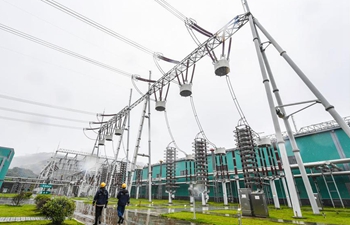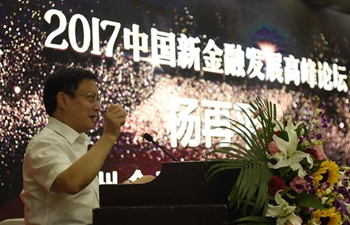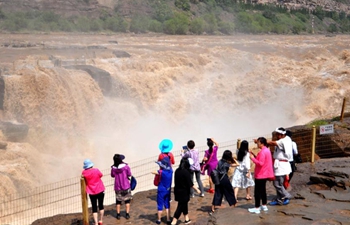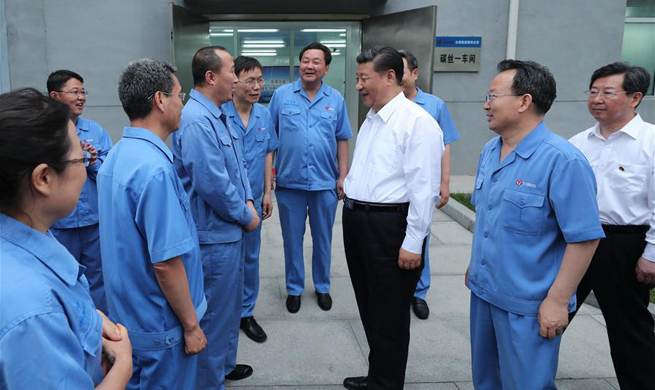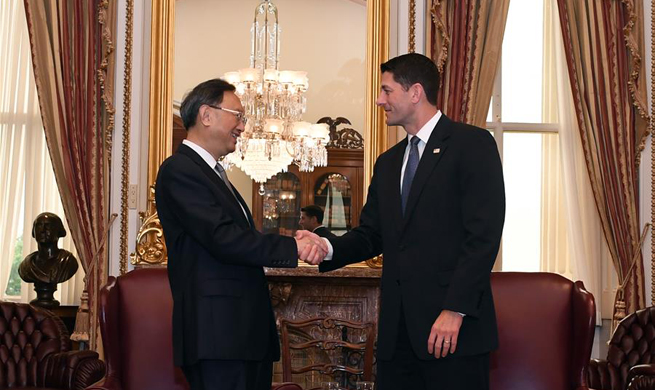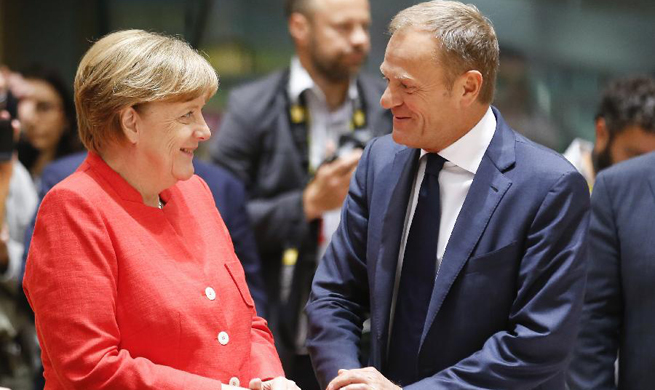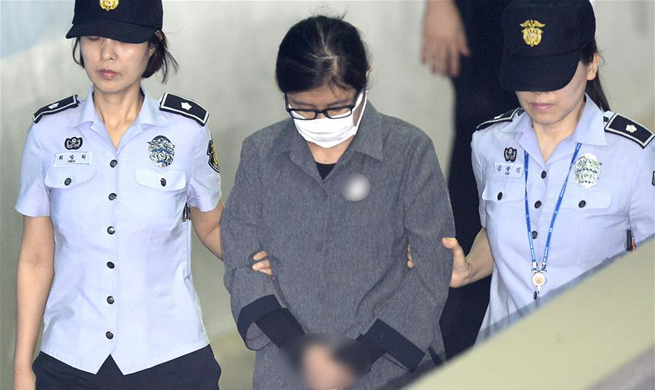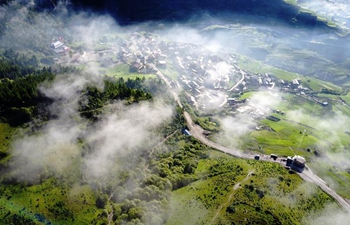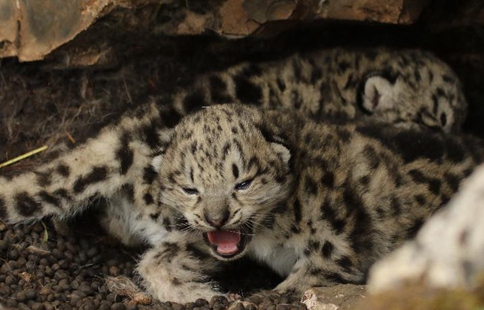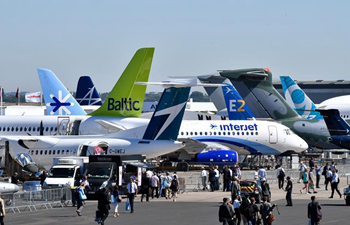BEIJING, June 23 (Xinhua) -- The results from the 12th round of discipline inspections across 15 universities were published Wednesday, marking the completion of inspections by the central authorities during the term of the 18th Communist Party of China (CPC) Central Committee.
The inspections also covered CPC organizations in provincial-level regions, central CPC and government organs, major state-owned enterprises, central financial institutions and centrally-administered universities, according to the Central Commission for Discipline Inspection (CCDI) of the CPC.
This is the first time the Party has successfully inspected all these entities within an administrative term.
Reviewing the past four years, inspections have developed substantially.
Starting from the first inspection in May 2013, Party organizations of 277 units and institutions have been inspected, 16 provincial-level regions have been re-examined and flexible inspections over four institutions have been carried out.
The inspections have been linked to innovative approaches and other breakthroughs in Party governance.
"Discipline inspections are how the CPC approaches discipline and the management of its own members," said Wang Qishan, secretary of the CCDI.
As early as 1990, the Party's Sixth Plenary Session of the 13th CPC Central Committee put forward that Party committees at central and provincial levels could deploy discipline inspection teams if needed.
The CCDI sent the first discipline inspection team out in 1996. In 2001, inspection teams were jointly dispatched by the CCDI and the Organization Department of the CPC Central Committee.
The system was included in an amendment to the CPC Constitution that was adopted at the 17th National Congress of the CPC.
In 2009, the discipline-inspection regulation was put into force and an inspection leadership group of the CPC Central Committee established.
The inspections continue to develop.
During the first round of discipline inspections in 2013, the work focused on work style, graft, political discipline and personnel selection.
The third round of discipline inspections added inspection and supervision to the performance of responsibilities of Party committees and officials.
The development of the inspection work is a clear demonstration that discipline inspection, as a "sword" of intra-Party supervision, is not a matter of expediency; rather, it is a systemic arrangement with a long-term vision.
In this battle of safeguarding a clean political environment, splendid results have been achieved.
Inspection teams sent by central authorities discovered the misconduct of Su Rong, a former vice chairman of top political advisory body. During the second round, corruption in Shanxi was exposed, which resulted in seven provincial-level officials being investigated.
Election fraud in Liaoning Province, Hengyang in Hunan Province and Nanchong in Sichuan Province were also revealed. Those dismissed from public office include Wang Min, former Party chief of Liaoning Province, and Huang Xingguo, former acting Party chief and mayor of Tianjin Municipality.
According to the CCDI, more than 50 percent of investigations into centrally-administered officials were as a result of information found by discipline inspectors, since the 18th CPC National Congress in 2012.
On every round of inspections, the inspectors would open hot lines and mailboxes for information on disciplinary violations. Letters and visits from the members of the public have been taken seriously.
Many problems were dealt with.
In order to push for more restrictions on the business activities of officials' family, Shanghai has launched a pilot program to address the issue, and it was closely followed by Beijing, Guangdong, Chongqing and Xinjiang.
In state-owned enterprises, where Party leadership has weakened, central authorities have urged Party organizations to step up Party building by securing funds and improving systems.
Despite the overall inspections by central authorities ending, the campaign will never end.
"Governing the Party will remain an ongoing task," Wang remarked in his report on the seventh plenary session of the 18th CPC CCDI earlier this year.
"Discipline inspections serve as an 'eagle eye' that uncover discipline violations," said Zheng Jun, a national political advisor.
Zheng said with the improved inspection system, better measures and increased experience, inspection work will be more effective and continue to make progress in the anti-corruption battle.




